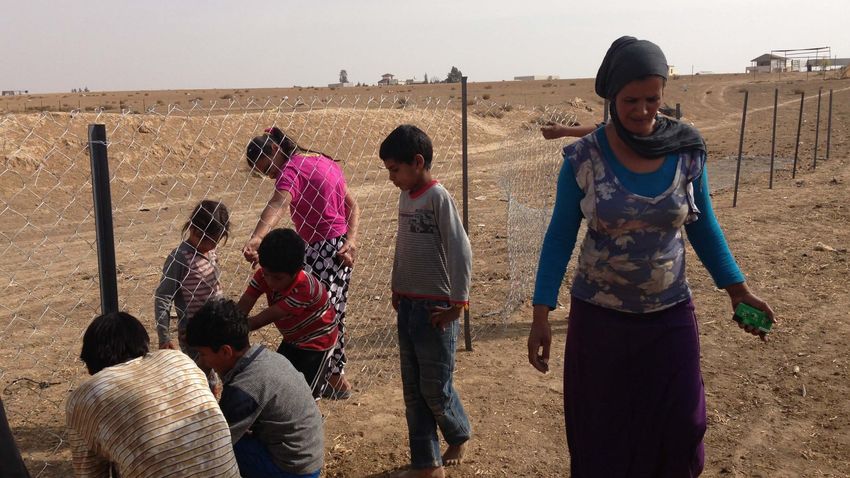
Marsha Zibalese-Crawford is an associate professor of social work in the College of Public Health, but the stamps in her passport and her frequent-flyer mileage might make her seem more like a global diplomat. Her work to strengthen human services agencies has taken her from Philadelphia to places as varied as the Israeli desert and the streets of Hong Kong. Her research has taken her to Poland, the Czech Republic and Bosnia-Herzegovina, with Japan and India on the docket later this year. Now she is putting her decades of globetrotting into a forthcoming book for Temple’s North Broad Press.
The book, The Role of Combined Action in Enhancing Organizations’ Sustainability, will be built around examples of Zibalese-Crawford’s and other contributors’ collaborations with agencies globally to improve their sustainability and effectiveness. Its target readers are leaders of nongovernmental organizations (NGOs) and other agencies, as well as public policymakers and students.
“The idea is to be very practical, not scholarly treatises,” she says. The book will focus on the importance of government and private partnerships that can extend an agency’s influence and further its goals. “It examines innovative ways agencies can partner with one another to make a more lasting positive impact on community health.”
Zibalese-Crawford does hands-on fieldwork known as community-based participatory research (CBPR). She travels to spend time with organizations where they work and live, talking to their leaders and members to understand their vision, strength and challenges. She helps them identify goals and next steps for sustainability. She also guides them toward promising partnerships and strategies for appealing to funding sources. It’s all about “capacity building,” their ability to grow and remain vital.
“So there's a vision, a futuristic understanding of the path for the organization,” she says. “They learn about evaluation, how to collect data, analyze and disseminate information using multiple types of media. They learn about budgeting, fundraising and accountability, all these tools to support their efforts moving forward”.
She spent many years partnering with U.S.-based nonprofit organizations and city governments to help maximize the impact of services they provide to at-risk communities. In 2012, Zibalese-Crawford received a U.S. State Department grant to work overseas with 27 Israeli and Palestinian agencies. The missions of the NGO participants ranged from curtailing human trafficking to increasing the arts in education. She visited them all to get a sense of how they operated, with an eye on sustainability and capacity building.
“Where are their needs? What steps do they need to take? How to create performance measures, and so forth,” she explains. She provided an assessment report to each organization, and they worked on creating strategic plans that they were able to present to funding sources and potential partners.
A 2013 grant from the Netherlands’ Cordaid Foundation allowed Zibalese-Crawford to deepen the work she’d begun with Sidreh, a nonprofit established in 1998 with the mission to support Palestinian-Bedouin women in Israel’s Negev region. Around 190,000 Palestinian-Arab Bedouins, who are citizens of Israel, live in unstable conditions in the region. Many are in villages unrecognized by the government that don’t have reliable infrastructure such as electricity and transportation. Bedouin women are further constrained by patriarchal social norms.
Zibalese-Crawford led an effort to interview 100 women living in unrecognized villages to discover their challenges and needs. With her guidance, Sidreh gained outside funding to enhance literacy programs that taught women to read and write Arabic and Hebrew. Through another funding partner, Sidreh created an agricultural gardening program and financial literacy workshops.
“If you talk to my family, every two months I was back in Israel,” she says. ”I would just stay in the community.”
One key to success that her book will highlight is the need to continually seek suitable partners. Inter-organizational relationships can be fruitful but challenging, Zibalese-Crawford says. NGOs may have similar roles and sometimes compete for resources.
“There’s always that element of asking: ‘Do we cooperate? Do we compete? How can we coalesce? What does that look like?’” she says.
The idea of pulling her experience together in a book had been brewing for years. Thanks to a grant from North Broad Press, the book will be available digitally for free when it is published in January 2021.
“The goal is to really educate, for folks to understand creative ways in which communities and organizations can partner, so there can be a significant impact on people’s health and prosperity,” she says.
